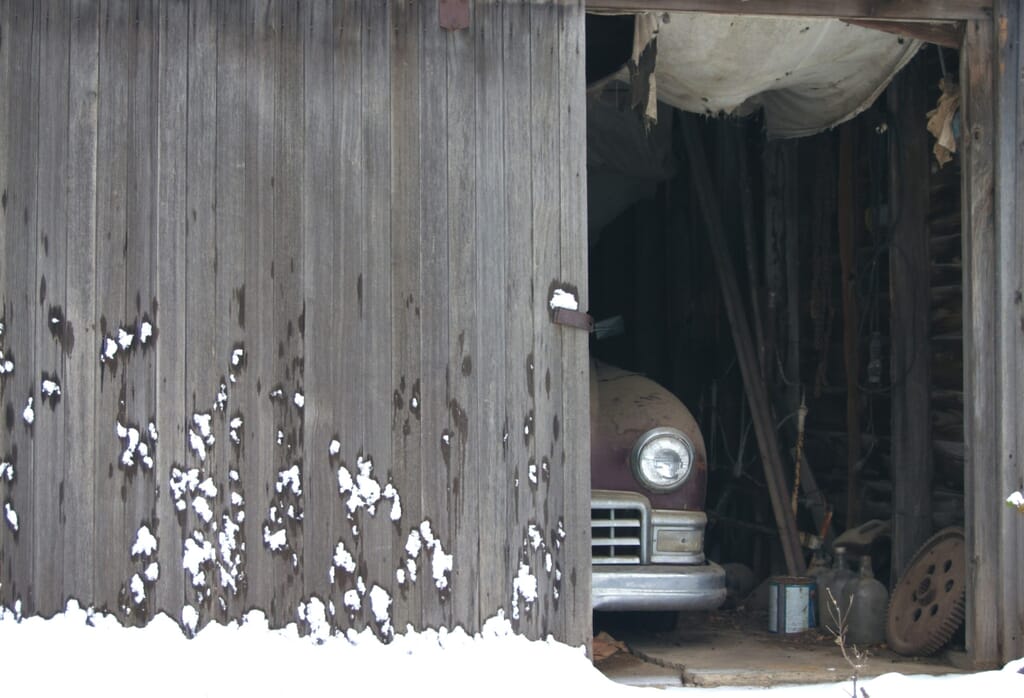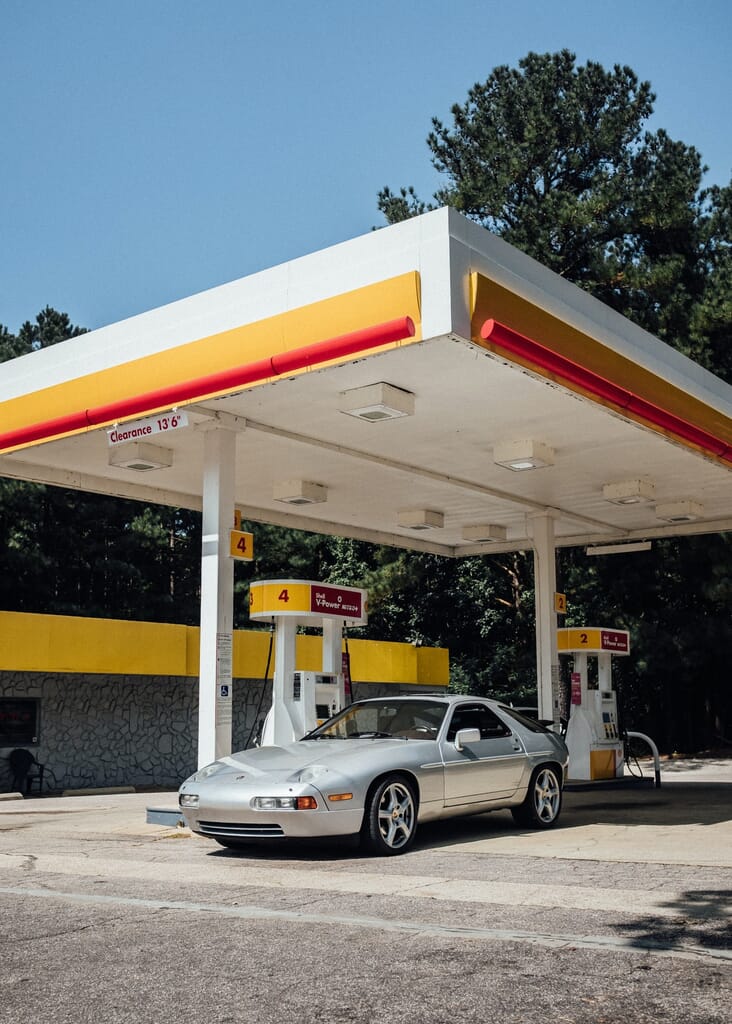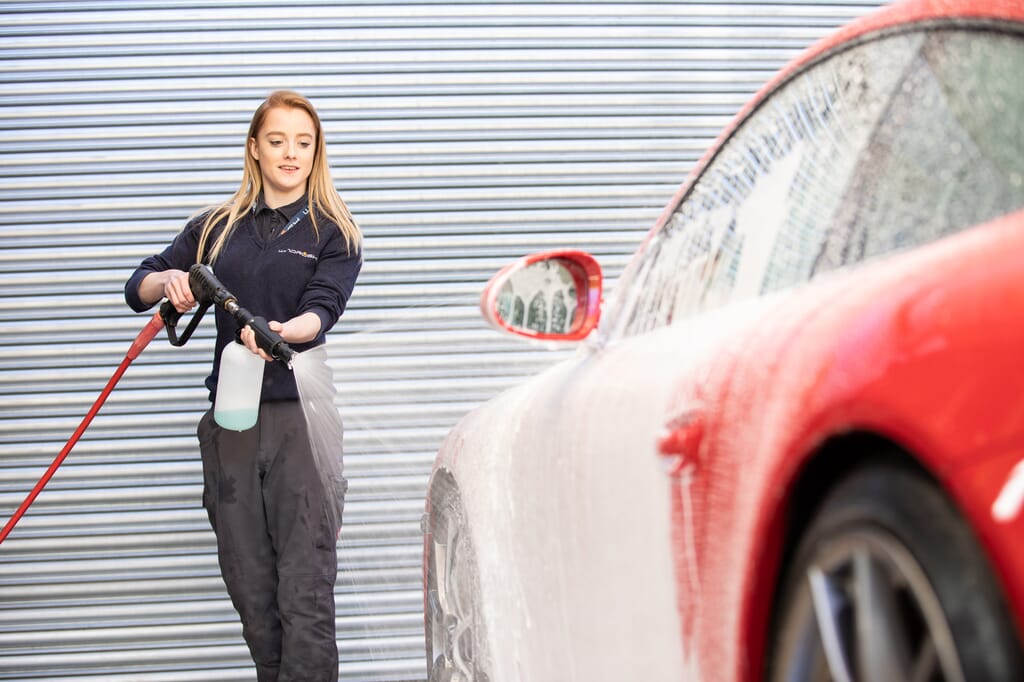
Long term car storage keeps your classic in good working order and helps maintain its value. Here are some of the biggest dangers of storing your classic incorrectly – and how we avoid them at Windrush.
As a classic car owner, you will likely be aware of the obvious dangers to your much-loved vehicle, things like every day prangs and even urban vandalism. But you might not give the same attention to the gradual, but just as serious, issues that you set in motion by simply leaving your vehicle static for longer periods.
Storing a car properly is about so much more than throwing over a cover and remembering to lock the garage door. Here are five of the most common risks of storing a car incorrectly, and the expert solutions we use at Windrush’s specialist car storage facilities in Central London and the Cotswolds.

#1. Corroded Paintwork
You’re rightly proud of your original paint finish – which is all the more reason to protect it from dangers such as sun-fade and corrosion which can be caused by contaminants left on the car’s surface before storage. A proper wash – followed by taking the time to dry properly – are critical steps before storage, as is keeping your vehicle in a covered, dark and dry facility. However, if that all sound like too much hard work, turn to Windrush Car Storage. We’ll treat your classic to our washing, drying and valeting/detailing services, then welcome it into a climate-controlled indoor storage bay where the elements stay at the door.
#2. Tyre Flat Spots
Your tyres were designed to turn on tarmac, and they don’t take kindly to sitting in one place for too long. Take the wrong approach to long term car storage and you risk getting flat spots: a badly worn section of the tread which causes a nasty vibration through the steering wheel when the vehicle is in motion. But it doesn’t have to be this way. An easy and cost-effective tactic is to increase your tyre pressure by 50% and make a point of rolling it a little at least once every couple of weeks. At Windrush Car Storage, we’ll take care of everything, keeping an eye on your PSI levels, and we even sympathetically and methodically stretch your classic’s legs on our internal rolling road without it having to be exposed to the elements.
#3. Mildew, mould and rust
First, you smell it. Then you see it: the dreaded dusting over your carpets and leather seats, giving a visual indication that your car storage wasn’t quite as dry as you thought. Worse still, moisture spells rust. So, if you’re keeping your classic in a private garage, at the very least, you should investigate the dehumidifiers on the market, and choose a modern unit that offers adjustable airflow to prevent mildew, condensation, mould and general damp. Alternatively, when you come to Windrush long term car storage, you can rely on a dehumidified private bay, with conditions optimised to suit your individual vehicle.
#4. Damaged Fuel Lines
Petrol might seem like an afterthought when it comes to long term car storage – but there’s a price to pay if you don’t take preventative action. Left to sit, fuel degrades in your vehicle’s tank, eventually causing a gunking-up of the fuel lines, pump and tank. Luckily, there’s a few tricks to stop this. You could leave a low volume of fuel sitting in the tank and add a fresh splash now and then. Alternatively, fill the tank with high-octane or non-ethanol fuel, which will take far longer to degrade (if you choose this option, also add a fuel stabiliser). At Windrush Car Storage, we’ll do the legwork, checking your fluid levels when your car arrives with us, and every 60 days after that.
#5. Mechanical failures
Cars were not designed to remain static for long periods, and a hands-off approach to car storage will take a heavy toll on the mechanics from failed batteries to brake seizures. Don’t just walk away from your car, instead, you should be starting the engine and moving it at semi-regular intervals, to get all the parts turning over and limbered up. Of course, this might not be possible in circumstances, and that’s where Windrush Car Storage can help. Our experts give your vehicle a full maintenance checkup every 60 days – and drive it to operating temperatures on our internal rolling road.
To discover the benefits of Windrush classic car storage, get in touch today.




